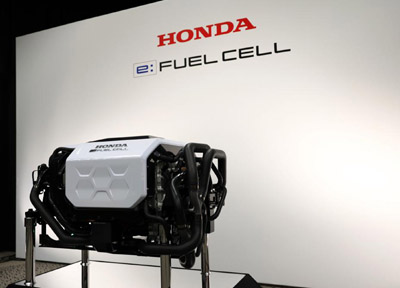Japanese carmaker Honda and American automaker General Motors do not appear to be ready to abandon hydrogen fuel cell systems just yet.
In a press release, Honda revealed it would be launching a new FCEV model equipped with a next-generation fuel cell system in 2024. The technology was co-developed with GM.
While Honda is optimistic about the technology, the program’s goals are conservative. Honda is only targeting annual sales of about 2,000 units equipped with the new hydrogen fuel cell technology by 2025. In 2030, Honda is looking to boost these numbers to about 60,000 units.
“Honda will begin external sales of the next-generation fuel cell system modules in the mid-2020s. Honda is envisioning the initial sales level of 2,000 units per year and will strive to expand sales in stages, with goals to increase sales to 60,000 units in 2030, and to a few hundred thousand units per year by the second half of the 2030s,” Honda said.
The new hydrogen fuel cell system would not only be used for consumer vehicles. Honda is also looking to expand the use of the solution to commercial vehicles such as heavy-duty trucks. The system could also be used for projects like stationary power stations and construction machinery. Honda believes these applications would allow its new hydrogen fuel cell technology to grow alongside battery-powered solutions.
Honda said its new FCEV car will be based on the popular CR-V SUV. The vehicle is expected to have a lot of range and be equipped with plug-in capabilities.
“Honda is planning to begin sales of the all-new FCEV model in 2024 in North America and Japan. This model will be based on the CR-V introduced last year in North America and equipped with the next-generation fuel cell system. In addition to the advantages of FCEVs, which enables long-distance driving with short refueling time, this all-new FCEV model will feature a plug-in function that offers the convenience of EVs which can be recharged at home,” Honda said.










